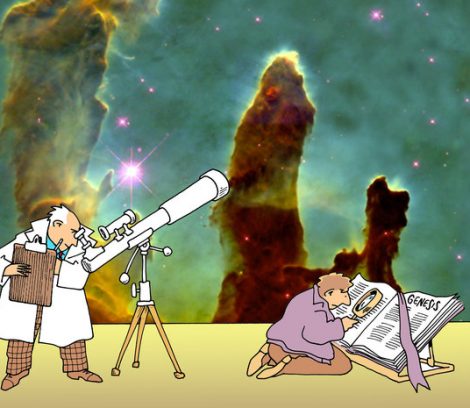Fourth Sunday of Lent
FOURTH SUNDAY OF LENT
“It is unheard of that anyone ever opened the eyes of a person born blind.” (Jn. 9, 38)
(note: I highly recommend that you read this gospel passage from the beginning before perusing this reflection)
I can see clearly now the rain is gone. I can see all obstacles in my way. Gone are the dark clouds that held me blind. It’s gonna be a bright (bright) bright (bright) sunshinin’ day.
Oh yes, I can make it now the pain is gone. All of the bad feelings have disappeared. Here is the rainbow I’ve been praying for. It’s gonna be a bright (bright) bright (bright) sunshinin’ day.
These words from the popular song by Johnny Nash surely epitomize the feelings this man in today’s gospel story had to have experienced.
He was blind. And now he could see!! “… the pain is gone.”
Of course, every one of the gospels has a story about blindness. The reason is that spirituality is essentially all about the ability to see – to see at much deeper levels; to see beyond inherited prejudices and biases; to see through issues like skin color and nationality; to see past rules and regulations.
It’s about the ability to see the light in the midst of darkness, as St.Paul tells us in the second reading. Or, as the song above puts it, it’s about the ability to see through the “dark clouds that held me blind.”
But today’s gospel is different from the other three in its presentation of blindness. It’s different because it isn’t presented as just another story. It’s dramatized. It’s theater – great theater!
In fact, the early church acted out this gospel in the sanctuary of the church as a way of helping catechumens prepare for their journey out of darkness into light, out of blindness into sight.
Look at all the characters involved in this drama. Listen to the dramatic lines they get to say. Then pretend for a moment that you are auditioning for a role in this theater production. Which character would be a natural fit for you?
Would it be the man “blind from birth”?
Would it be one of the townspeople who talk among themselves about him, some saying they knew him, others saying they’re not too sure?
Would it be one of the Pharisees who refuses to see what’s right in front of his eyes, so he resorts to accusations, and judgments, and righteous indignation?
Would it be one of the parents of the blind man who are so afraid of the Pharisees and what they would do to them that they don’t want to get involved, even to the point of saying about their own son: “He’s of age; ask him”?
Or would it be the blind man himself after he can see?
Which one of these roles best fits you? Or have you played them all at some point in your life?
But, notice too that this great piece of drama doesn’t just have some interesting roles to play. It also presents us with at least three major themes or teaching points:
Theme #1: All of us are born blind. All of us have to have our eyes opened.
All along, then, the main character in this tale is really you and me. The whole point to “growing up,” to arriving at a place of maturity is to gain the ability to see – to see “clearly,” as the song puts it; to see with a new set of eyes; to see with a sense of wisdom and discernment.
For example, notice the progression of the blind man’s insight into who Jesus is. He begins by telling everyone “the man called Jesus” brought him sight. Later, he tells the Pharisees “it is unheard of that anyone ever opened the eyes of a person born blind.” So, he tells them, he must not just be a man, but a prophet. Finally, in the last scene of this drama, the man born blind realizes that Jesus is the Son of Man, and falls to his knees and worships him.
Theme #2: The blind man never asks for anything. It is freely given to him. His sight is gift. It’s grace. He didn’t have to do anything to “deserve” it.
What this tale is telling us once again is the major point to Jesus’ life and teaching: we are already loved; we are already treasured and cherished. We don’t have to gain or merit God’s lavish love for us. It’s already a fait accompli. God is Love, as John’s gospel tells us repeatedly. This great drama of today’s gospel is another demonstration of how abundant that love is.
Furthermore, our response to the depth of that love is one of joy at experiencing the “good news,” as well as profound gratitude at being so cherished. Our moral code, then, becomes one of living lives that demonstrate how much we relish the profusion of God’s love for us. It’s about allowing the passion of God’s friendship with us to overflow into a mixture of joy and gratitude and service.
Theme #3: Those who know little, who always assume the role of being a learner (the true meaning of the word “disciple”), will learn much. They, like the man in the gospel, will fall to their knees and listen with their hearts.
On the other hand, those who have all the answers, who make all the judgments, who demand that others listen to them, and to them alone, will learn nothing.
“It is unheard of that anyone ever opened the eyes of a person born blind.”
Each of us was born blind. Our life journey, our spiritual goal is one of having our eyes opened so that we can join the man in today’s gospel who is awed by the miracle of it all, and who then falls to his knees in joy and gratitude.
Like him, hopefully we can then join fully in singing:
I can see clearly now the rain is gone. I can see all the obstacles in my way. Gone are the dark clouds that held me blind. It’s gonna be a bright (bright) bright (bright) sunshinin’ day.
Ted Wolgamot, Psy.D.
11809194.1
2/22/2015



